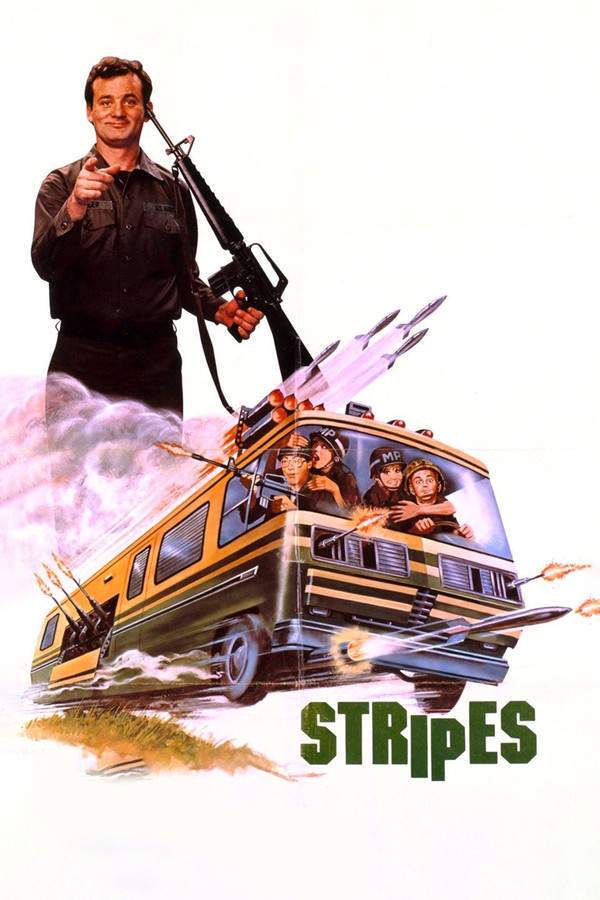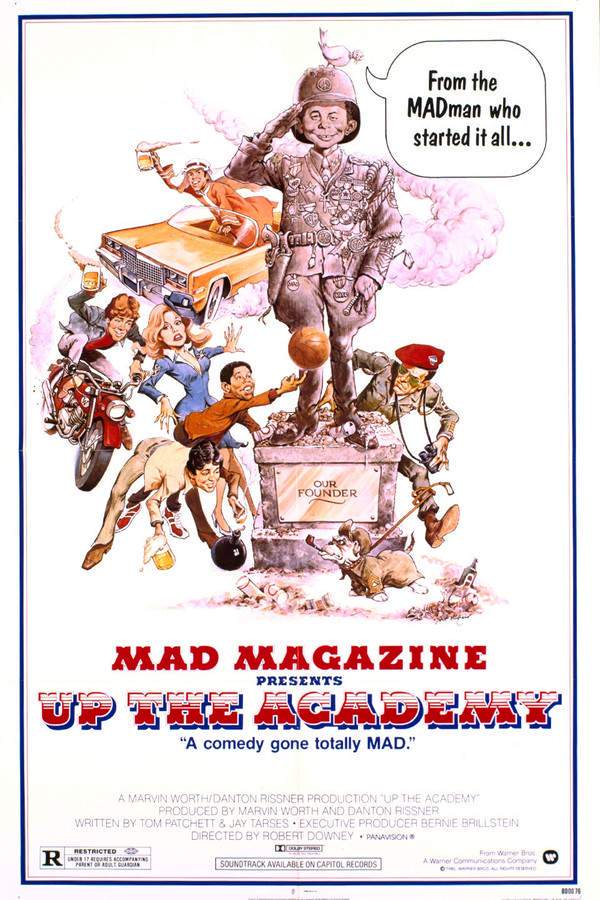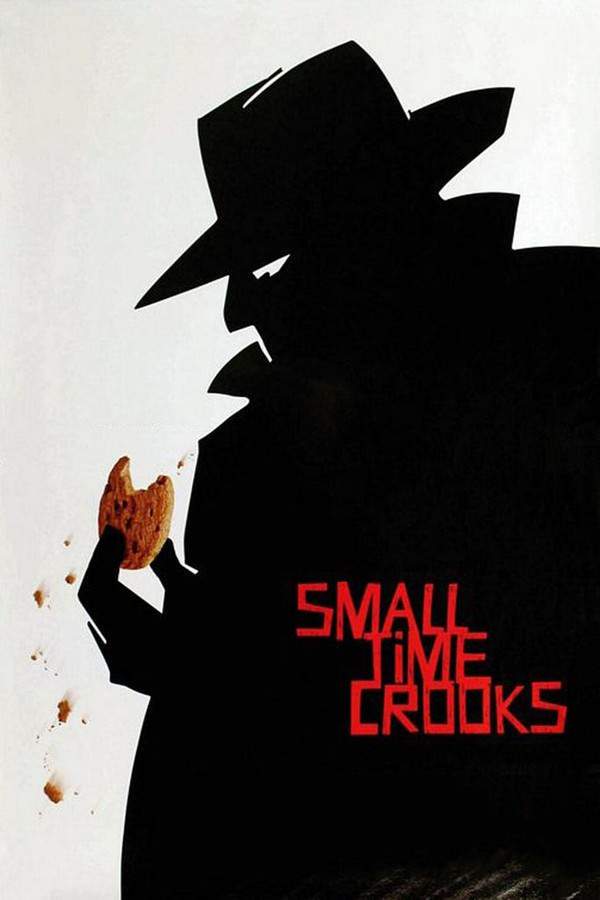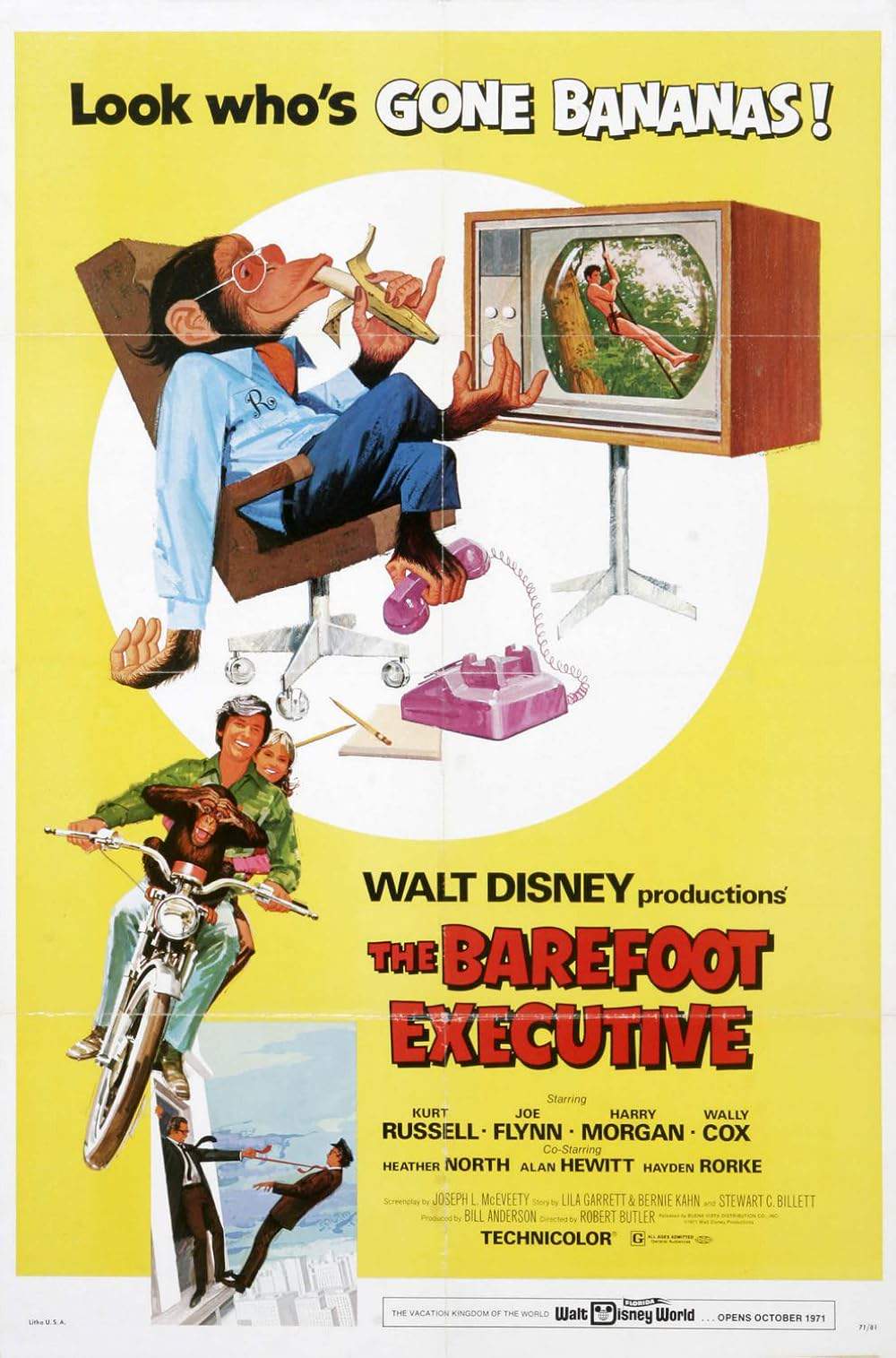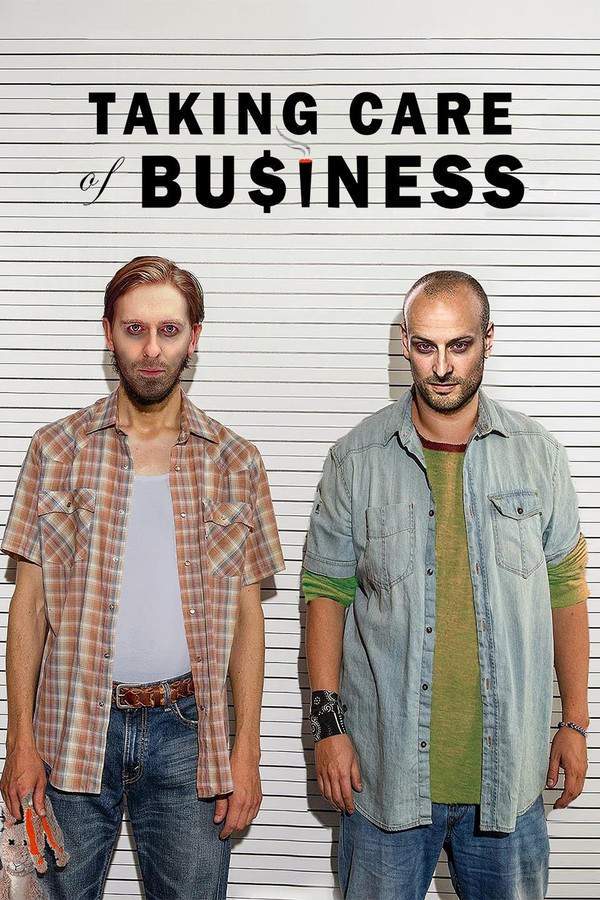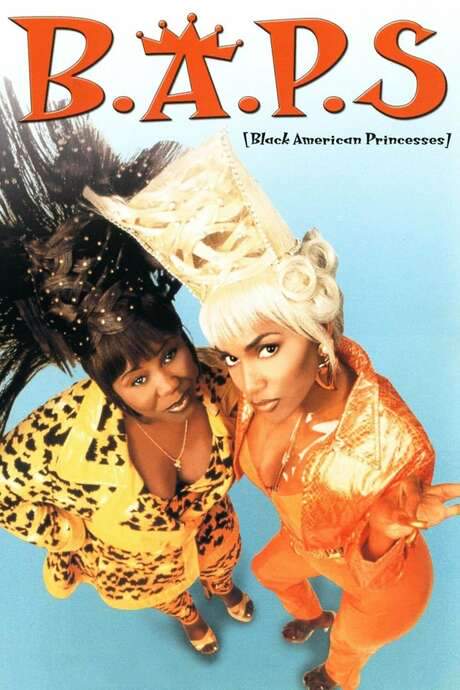
Wake Me When It’s Over
Year: 1960
Runtime: 126 mins
Language: English
Director: Mervyn LeRoy
Even after the war ends, the hapless Gus Brubaker cannot escape military service and is assigned to a tiny, forgotten Japanese island, where his blundering antics kick off a wildly funny Air Force escapade filled with mishaps, eccentric characters, and chaotic adventure.
Warning: spoilers below!
Haven’t seen Wake Me When It’s Over yet? This summary contains major spoilers. Bookmark the page, watch the movie, and come back for the full breakdown. If you're ready, scroll on and relive the story!
Wake Me When It’s Over (1960) – Full Plot Summary & Ending Explained
Read the complete plot breakdown of Wake Me When It’s Over (1960), including all key story events, major twists, and the ending explained in detail. Discover what really happened—and what it all means.
Gus Brubaker, [Dick Shawn], a self-described schnook, returns from the shadowy days after the Korean War when a wife-driven push to apply for G.I. insurance collides with a brutal bureaucratic twist: he’s listed as killed, then somehow reactivated and reassigned to a ramshackle radar outpost on a backwater island near Shima, Japan. The base is a blur of boredom, with airmen apathetic, poorly equipped, and the whole operation long past its prime. At the helm is Captain Dave “Doc” Farrington, [Jack Warden], a blunt, hard-charging leader who knows how to bend rules for a laugh, and Captain Charlie Stark, [Ernie Kovacs], a free-spirited pilot who thrives on mischief and momentum.
Gus soon falls into a scheme with Ume Tanaka, [Nobu McCarthy], the wary daughter of the island’s mayor. She introduces him to the island’s natural hot springs, a jewel the men eagerly exploit. Spurred by the trio’s plan, they set out to transform the shabby radar post into a gleaming resort—Hotel Shima—redeeming the men’s energy and giving the base a fresh purpose. Doc Farrington, with a glint of hustle, also teams up with journalist Joab Matinson, [Robert Emhardt], who stretches the truth about the water’s “healing powers” to drum up publicity that could put the hotel on the map.
To give the project legitimacy, Lt. Nora McKay, [Margo Moore], a practical and iron-willed officer, is brought in to lend a female perspective and discipline to the operation, while Stark himself grows closer to her. The plan quickly gains traction as the airmen rally around the project, and the resort begins to take shape. Nora is tasked with staffing the hotel with forty young women from the village, who, in a nod to local custom, are “sold” for two years to Gus as their papa-san, a detail that adds cultural tension to the enterprise and to the relationships forming around it. The arrangement is more than a logistical issue; it tests loyalties, affection, and the boundaries of affection in a tight-knit military community.
As the hotel takes form, Nora and Charlie’s evolving relationship adds warmth to the story, even as Nora questions whether Charlie is marriage material. The project’s success intensifies, giving the base a renewed sense of purpose and camaraderie, while the romance between Nora and Charlie deepens, binding personal and professional stakes together.
Trouble erupts when Joab, feeling embittered, drinks too much and pens a sensational account that paints Hotel Shima as a den of vice. Gus is abruptly court-martialed as the scapegoat, despite hundreds of airmen owning the venture. When Charlie insists on testifying, he’s sidelined by a chain of command anxious about reputation, and a congressional panel from Washington, DC intensifies the scrutiny. In a dramatic moment, Stark takes to the skies in a jet to buzz the trial, while Doc Farrington uses his influence to pressure and manipulate the proceedings, leveraging the base’s luxury goods to bolster his case. Stark’s protest culminates in a bold stand, and he testifies on Gus’s behalf, even as chaos erupts around the courtroom.
The verdict arrives in an awkward twist: Brubaker is found not guilty on one count but guilty of taking government property. Yet as sentencing unfolds, the court discovers it has tried the wrong man due to the earlier misstep, and the panel ultimately absolves Gus, leaving Hotel Shima in the hands of the islanders. In a culmination that blends justice with fraternity, Charlie and Nora reconcile and decide to marry, embracing a future built on trust and shared history.
As the curtain falls, Gus says a poignant goodbye to Ume Tanaka, and a sense of new beginnings fills the air. Colonel Hollingsworth, now demoted to sergeant, is reassigned to the base, bringing a quiet note of closure to the tangled web of ambition and loyalty that defined Hotel Shima. Ume waves farewell as Gus heads home, a chapter closed but not erased, and the island’s future glows with the promise of a community rebuilt by its own hands.
-
Captain Dave “Doc” Farrington: [Jack Warden]
-
Captain Charlie Stark: [Ernie Kovacs]
-
Lt. Nora McKay: [Margo Moore]
-
Gus Brubaker: [Dick Shawn]
-
Ume Tanaka: [Nobu McCarthy]
-
Joab Matinson: [Robert Emhardt]
-
Gen. Weigang: [Raymond Bailey]
-
Col. Archie Hollingsworth: [Parley Baer]
-
Hap Cosgrove: [Marvin Kaplan]
-
Lt. Malcolm Bressler: [Paul Comi]
-
Smitty: [Tommy Farrell]
Last Updated: October 09, 2025 at 11:01
Explore Movie Threads
Discover curated groups of movies connected by mood, themes, and story style. Browse collections built around emotion, atmosphere, and narrative focus to easily find films that match what you feel like watching right now.
Military Farce Comedies like Wake Me When It’s Over
Mishaps and camaraderie in absurd military situations far from the front lines.If you enjoyed the chaotic, lighthearted antics in Wake Me When It’s Over, you'll love these other military farces. Discover movies featuring hilarious schemes, eccentric characters, and a strong sense of camaraderie, all set within the absurd confines of military life away from any real action.
Narrative Summary
Stories typically begin with a protagonist, often hapless or mischievous, being assigned to a seemingly insignificant post. Their attempts to improve their lot, whether through an illicit business, a romantic pursuit, or simply avoiding work, inadvertently create a sprawling, chaotic situation that tests their ingenuity and forges strong bonds with their fellow outcasts, leading to a comedic crisis and a happy resolution.
Why These Movies?
These films are grouped by their shared light tone, steady pacing of escalating antics, and focus on the humorous friction between individual initiative and rigid military bureaucracy. They deliver a consistent experience of optimistic, uplifting comedy rooted in character-driven mishaps and the triumph of camaraderie over authority.
Movies about Accidental Entrepreneurs like Wake Me When It’s Over
Characters who stumble into building a successful, chaotic enterprise against all odds.Fans of Wake Me When It’s Over will enjoy these stories of improvised success. Explore movies where characters stumble into building a thriving enterprise from scratch, filled with comedic challenges, romantic subplots, and a heartwarming sense of community that emerges from the chaos.
Narrative Summary
The plot follows a simple pattern: a character with no particular ambition finds themselves with an unexpected opportunity or problem. Their well-intentioned but clumsy solution gains unexpected momentum, snowballing into a full-fledged operation that attracts a cast of helpers and inevitably draws the attention of authorities, leading to a crisis that ultimately validates their unorthodox success.
Why These Movies?
These movies share a specific narrative arc of organic, chaotic creation. They are united by a light, optimistic tone where the journey from nothing to something is the primary source of comedy and warmth. The pacing is steady, focused on the incremental and often hilarious building process.
Unlock the Full Story of Wake Me When It’s Over
Don't stop at just watching — explore Wake Me When It’s Over in full detail. From the complete plot summary and scene-by-scene timeline to character breakdowns, thematic analysis, and a deep dive into the ending — every page helps you truly understand what Wake Me When It’s Over is all about. Plus, discover what's next after the movie.
Wake Me When It’s Over Timeline
Track the full timeline of Wake Me When It’s Over with every major event arranged chronologically. Perfect for decoding non-linear storytelling, flashbacks, or parallel narratives with a clear scene-by-scene breakdown.

Characters, Settings & Themes in Wake Me When It’s Over
Discover the characters, locations, and core themes that shape Wake Me When It’s Over. Get insights into symbolic elements, setting significance, and deeper narrative meaning — ideal for thematic analysis and movie breakdowns.

Wake Me When It’s Over Spoiler-Free Summary
Get a quick, spoiler-free overview of Wake Me When It’s Over that covers the main plot points and key details without revealing any major twists or spoilers. Perfect for those who want to know what to expect before diving in.

More About Wake Me When It’s Over
Visit What's After the Movie to explore more about Wake Me When It’s Over: box office results, cast and crew info, production details, post-credit scenes, and external links — all in one place for movie fans and researchers.

Similar Movies to Wake Me When It’s Over
Discover movies like Wake Me When It’s Over that share similar genres, themes, and storytelling elements. Whether you’re drawn to the atmosphere, character arcs, or plot structure, these curated recommendations will help you explore more films you’ll love.
Explore More About Movie Wake Me When It’s Over
Wake Me When It’s Over (1960) Scene-by-Scene Movie Timeline
Wake Me When It’s Over (1960) Movie Characters, Themes & Settings
Wake Me When It’s Over (1960) Spoiler-Free Summary & Key Flow
Movies Like Wake Me When It’s Over – Similar Titles You’ll Enjoy
Stripes (1981) Ending Explained & Film Insights
Military Academy (2007) Full Summary & Key Details
At War with the Army (1950) Detailed Story Recap
Never Wave at a WAC (1953) Film Overview & Timeline
Wake Island (1942) Ending Explained & Film Insights
Down Among the Sheltering Palms (1953) Complete Plot Breakdown
No Time for Sergeants (1955) Story Summary & Characters
Up in Arms (1944) Spoiler-Packed Plot Recap
Wake Up (1975) Complete Plot Breakdown
The Adventures of a Rookie (1943) Movie Recap & Themes
I Was a Male War Bride (1949) Film Overview & Timeline
In the Army Now (1994) Complete Plot Breakdown
The Horizontal Lieutenant (1962) Detailed Story Recap
Stop Fooling Around… Soldier! (1977) Movie Recap & Themes
Wake Me When the War Is Over (1969) Spoiler-Packed Plot Recap


